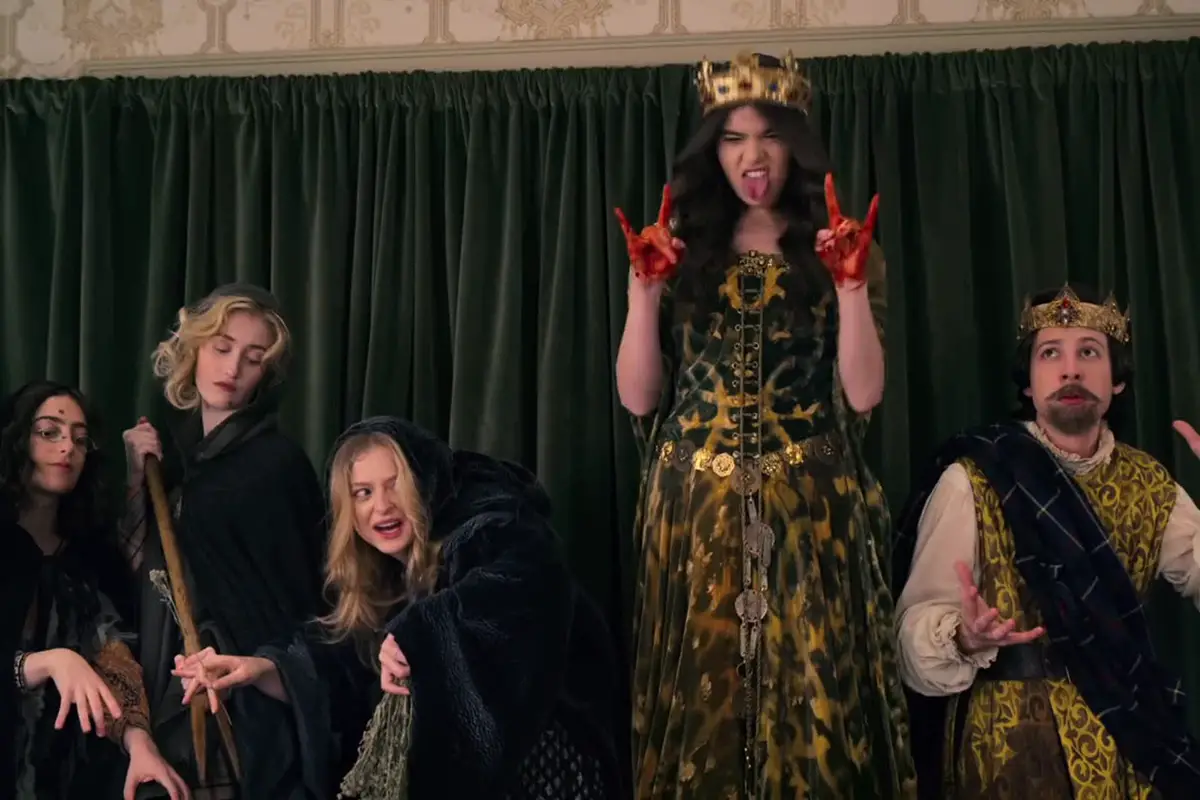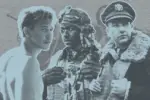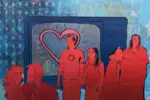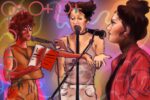With the release of the highly anticipated new streaming service Apple TV+ came the new Hailee Steinfeld-helmed show, “Dickinson.” Considering all the hype the project was getting — the Oscar-nominated lead actress and the fact that it is literally a biopic of the famed poet Emily Dickinson — it is fair to say that most people had very high hopes coming into it.
I was one of those people. I love Steinfeld’s work and Dickinson’s poetry and I was absolutely ecstatic about the two coming together. However, what I and the rest of the Apple TV+ subscribers got was far from the masterpiece we were expecting.
The most obvious problem is that “Dickinson” is sort of set up like a bad teen dramedy. I thought I would be getting a real hard-hitting biopic, but the creators seem to have tried to update the story to be relatable to today’s youth. And, like most shows written by adults trying to be relatable to kids, it fails miserably.
The characters speak in modern vernacular, there are obvious allusions to the current political and social climate, the score includes pop and hip-hop music and there’s just a very clear “trying too hard” feeling throughout the dialogue and action. Overall, this just makes the show very … awkward.
It’s hard to get through an episode without cringing; it all feels so forced and incorrect. I mean, there is no good way to react when you watch someone in full pre-Civil War garb run down the stairs on Christmas morning to rap music. Or when the screen suddenly shifts from Dickinson scrawling golden words across her papers to a strange fantasy world with ghostly horse-drawn carriages, circus acts and poor CGI butterfly tattoos without warning.
Or when Emily Dickinson’s sister, Lavinia Dickinson, lets out a moan at the dinner table because her boyfriend is doing some stuff down where no one can see. It’s so weird, like an episode of “Riverdale” or something.
There are also these strange references to today’s political climate and problems that, although well-intentioned, sort of come off as tone-deaf. When their parents go out of town, the Dickinson children throw a party where they offer opium to their guests and seem to try to start some discussion about substance abuse and addiction. But it mostly just comes off as a cautionary tale without any real critique.
Mr. Dickinson runs for Congress on a platform of anti-slavery, but continuously says he refuses to be a full abolitionist in order to keep the Union together. The only ones that seem to fully embrace the abolitionist movement are the gaggle of white women that make up Lavinia Dickinson’s friend group (which is problematic in and of itself) and only when saying how important it is to vote Republican — a pretty tasteless joke about how far from their original values the Republican Party has strayed.
In fact, there is only one time in the entire season that a black person talks about racism and slavery and it seems to be over before it even starts.
The worst of these poorly-executed political references is probably on election day when Emily Dickinson’s father is nearly beat out by the Know-Nothing Party. Upon learning of their rising success in the polls, Mr. Dickinson goes on a rant about how terrible their anti-immigrant, anti-other and often violent platform is.
That would not be a problem if he didn’t turn it around and go back to his “but we all have to stick together and be good patriots” attitude. Just like with his stance on slavery, Mr. Dickinson is all for condemning hateful behavior, but not at the expense of keeping the peace.
However, the show’s awkward nature and poorly crafted political commentary are not even what makes it so difficult to get through. What really takes the cake is how little the series’s creators seem to understand their main character, which is super unfortunate because Steinfeld has such a great resemblance to the poet and her acting chops are insane. Unfortunately though, she isn’t really acting how Dickinson would act.
Now, I’m no Emily Dickinson expert, but I am a fan. I have read some of her poems, I have studied her in classes and I really appreciate all of it. But through the way she writes and her life story, it is clear (to me at least) that she would not be the way she is in the show at all. “Dickinson” portrays her as somewhat of a wild party animal; an eccentric being that takes big risks, like making out with her best friend Sue in broad daylight and sneaking into a boys-only lecture at the college dressed as a man.
https://www.instagram.com/p/B4-YTB-lJb6/
In reality, Emily Dickinson was a shut-in. She probably didn’t go around giving opium to people and rejecting marriage proposals left and right. Her life was described as being quite depressing. She almost never left her bedroom toward the end of her life, she never married, she never escaped Amherst, Massachusetts, and she was never published with attribution during her lifetime.
Speaking of never being published, “Dickinson” portrays Emily Dickinson as being quite proud and open about her work. She repeatedly tries to get it published in her brother’s name or anonymously and will tell anyone that she is the greatest poet of her time. At one point she even shamelessly states, “I love it when people quote me.”
This was far from the true Emily Dickinson. The real Dickinson did not tell people about her poems all the time. A few people, including other poets she corresponded with, knew about them, but she was only published a few times before her death and did not appear to see herself as anywhere near the best poet in the world.
She was extremely introverted and the way she talked about herself was often quite deprecating (just look at one of her poems titled “I’m Nobody! Who are you?”). It was only once she had passed that Lavinia Dickinson discovered her extensive work and had it published to its current critical success.
So, although I desperately wanted to like “Dickinson,” I just couldn’t. Not only was it not the Emmy-worthy historical drama that I was expecting, but it was like some weird, present-meets-past teen dramedy with tone-deaf political commentary and no understanding of its main character. And while I am still a Steinfeld and Emily Dickinson fan, I will probably not be tuning in for a second season (if there even is one).
















